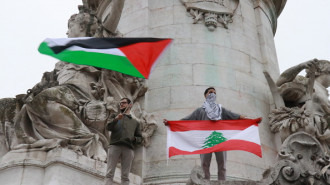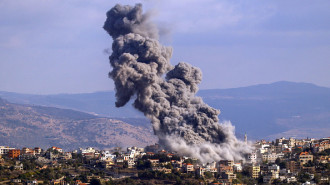US court interrogates Libya's warlord Khalifa Haftar in war crime cases
US Democracy and Human Rights Foundation has confirmed that Libya's Marshal Khalifa Haftar was subjected Sunday to questioning before the lawyer of the victims' families pleading against him in the US Virginia Court.
Imad Al-Din Al-Muntasir, the head of the human rights foundation office in Libya, said the former chief of the eastern-based Libyan National Army (LNA), who was convicted of war crimes for extrajudicial killings and torture in July, has finally faced the court Sunday.
"The interrogation may last for two days, during which Haftar is obligated to answer the lawyers' questions about his responsibility for the crimes committed in various regions of Libya," Al-Muntasir told Al-Araby Al-Jadeed.
The warlord is facing charges of reckless bombings, deliberate massacres of civilians, and torture of prisoners.
In July, A federal judge in Virginia convicted Haftar in absentia of war crimes since he hadn't cooperated with justice.
Between 2019 and 2020, the families filed three lawsuits against the military figure under the 1991 US law, the Torture Victim Protection Act, which allows all citizens in the world to press charges on someone who, acting in an official capacity for a foreign nation, has committed acts of torture and/or extrajudicial killing.
Al-Muntasir pointed out that if Haftar refuses to cooperate with the victims' lawyers, the verdict of conviction will become final, and the court will go directly to determine the amount of compensation.
The Libyan activist has estimated the compensation to be between US$ 100 and 200 million.
In previous cases, it has been hard for victims to claim compensation. Leaders accused of human rights violations and corruption often structure their assets behind layers of shell companies to hide their wealth. It is also difficult for US courts to seize foreign assets.
Haftar's US citizenship and property holdings in the states make his case different.
In 1991, Haftar moved from Chad to the US, where he gained citizenship and invested in real estate.
The interrogation took place reportedly on Sunday through the Zoom application, in closed sessions, attended only by lawyers.
"The court set conditions for dealing with the results of the investigation and limiting its publication," said Al-Muntasir.
The secrecy decision was reportedly taken after firm pleadings by Haftar's lawyer, who insisted on protecting the case's details from publication, so as not to be politically mocked against his client, who intends to run for the presidency of the country.
Last year, the 79-year-old politician temporarily withdrew his post from the command of the LNA for a potential run in the election. Under Libyan law, officials must suspend their current work three months before participating in the election
The election was scheduled to be held on 24 December 2021 but was postponed after the head of the High National Election Commission (HNEC) ordered the dissolution of the electoral committees nationwide.
Following Gaddafi's ousting, he returned to Libya in 2011 and served in the internationally recognised government until 2014, when civil war broke out in the country.
Haftar has been supported to varying degrees by foreign powers, including Egypt, the UAE, Syria, Israel and Russia.
Some have seen him as a barricade against Islamic militants and a strong figure who could bring stability to conflict-torn Libya.
Democracy and Human Rights Foundation said other civil lawsuits will be filed against the Libyan warlord, who was reportedly responsible for killing 28 students in early January 2020 during a bombard that targeted the military school in Tripoli.

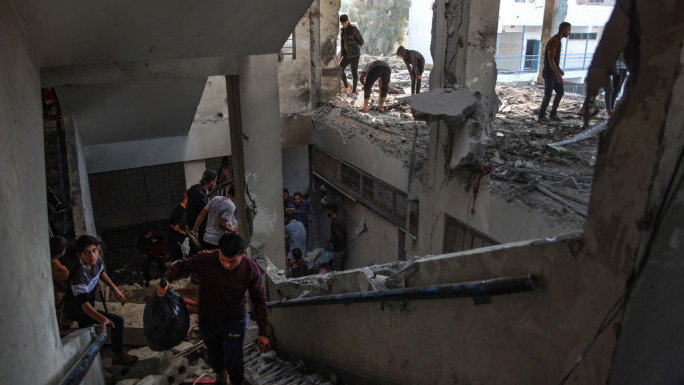
![President Pezeshkian has denounced Israel's attacks on Lebanon [Getty]](/sites/default/files/styles/image_684x385/public/2173482924.jpeg?h=a5f2f23a&itok=q3evVtko)

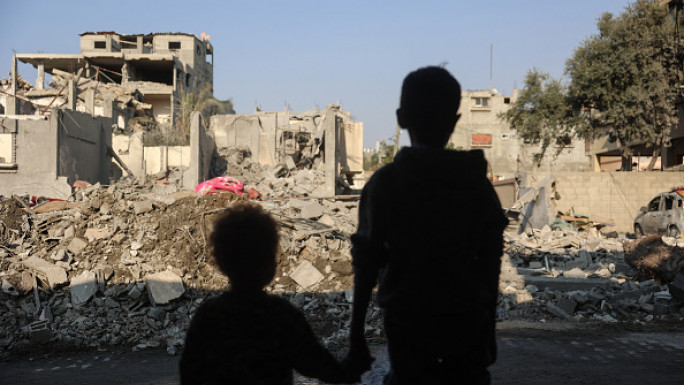
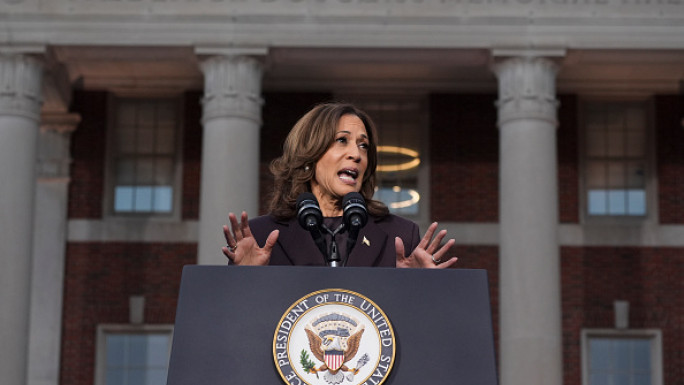
 Follow the Middle East's top stories in English at The New Arab on Google News
Follow the Middle East's top stories in English at The New Arab on Google News
